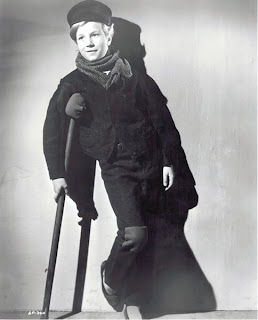
I have been spending much of the summer mulling over the nuances between contentment and complacency. The two words seem to be so synonymous in definition that I did not think any difference would matter. But the Bible has two very contrasting uses for the two words. Proverbs 1:32 says, "For the waywardness of the simple will kill them, and the complacency of fools will destroy them" but Philippians 4:12 says, "I have learned the secret of being content in any and every situation, whether well fed or hungry, whether living in plenty or in want." Proverbs frowns upon complacency but Philippians makes contentment seem like a good thing.
When camping out at Glacier National Park I wound up out on the hood of our car as we settled in for the night. Not expecting anything spectacular, Kayla and I watched a meteorite shower begin to animate the sky. At first it was one single meteorite. Then, somewhere miles above us, minerals began scraping against the earth's atmosphere and provided us with a show. My state of contentment switched to a state of privilege. Soon, meteorites were flashing every 45 seconds until we saw something unlike anything; something that surpassed the term "meteorite" and was only worthy of the title "falling star." The star seemed to rip open the black sky and bleed a streak of red and green colors behind it, before tailing off into a vapor of white light.
Coming back from Glacier a day or two after the shower we stopped in a small town at public park. Weary from excessive sitting, I stretched out and took in a firsthand view of small-town Montana. After I got the blood flowing in my legs again I plopped down in the manicured green grass and slipped my hands under my head. I looked to the sky. Sitting there, with my elbows pointed into blue space, a feeling crept up slowly. I could feel summer in the green grass. I began to remember.
As I think back on my past, I remember things not as they were, but as I have chosen to remember them - wrapped up in nostalgia. First, I remember the undisputed arrival of spring. I introduced myself to the mid-day sun and wanted to be best friends. However, sunlight faded and the nights of May brought a fresh bouquet of sounds. I couldn't get enough. The soft cooing of mourning doves as I played in the sand under a big oak tree. Thunder and lightning together made an ensemble greater than any Mozart I had ever heard. I remember how the cricket chorus sung at night as I chased fireflies wildly. Through a forest of green blades my feet ran. A fresh dew seemed to arrive out of nowhere and would dampen my feet in a cool liquid. But, what I remember most is the grass; simple green grass.
Summer out here contains no grass. There are eternal fields of flowers that last for months and there are sage brush flats as far as the eye can see, but there is never grass.
As I laid there in small-town Montana, I began to think how this summer has not been like a summer at all. I spend every day working or playing so hard that I lay down solely to sleep. I never go outside and lay down just to enjoy the presence of summer; something I always did back home.
I have always been a fairly content person, but when I laid in that patch of grass somewhere in Montana, I realized I have lost something in these mountains.
In my attempt to make the most of life out here I ignored the simple joy of enjoying summer's presence and lost my contentment in a tangled confusion of aspirations. I made lists of things I wanted to do and then went about tactics of completing them. I talked to friends and got advice, I studied maps and made my plans, I borrowed cars and woke up early. I was hungry for adventure, but the price I paid was not only my contentment.
Playing soccer last Friday evening I leaned too far on my ankle and felt my knee take the extra pressure. Having torn my ACL last summer I took a moment to regather my strength and assess whether my knee was hurt or not. Limping around for a few seconds and, upon deciding I was fine, I continued to play even though I knew the pressure had made my knee weak. The thought of sitting out for the rest of the game crossed my mind but was quickly silenced by my adrenaline, ambition, and aspiration to keep playing.
Within 15 minutes my knee brought me to the ground. I remember it; I will never forget the suspended animation when my leg gave out. Running and then turning with the weight of my whole body on my right leg, I heard my knee crack. Instantly my strength was gone and I knew at that moment the damage had been done, but before I fell to the ground I floated in the air. Like a cartoon character running off a cliff, I waited before I dropped, suspended in thin air. After I hit the ground it was all over.
When I lost my contentment I had also lost my sense of pacing in a self-told lie that I could do everything. In my haste to do it all I deprived myself of many things, including my ability to walk on my own. Using crutches to get everywhere some people have started calling me Tiny Tim. Today just happens to be Christmas (in the National Parks) and since tonight is the Christmas party I think I shall be content going as Tiny Tim.
"God bless us, every one!"
When I get back, at least I can finally try and spend some time deciphering the difference between complacency and contentment.


